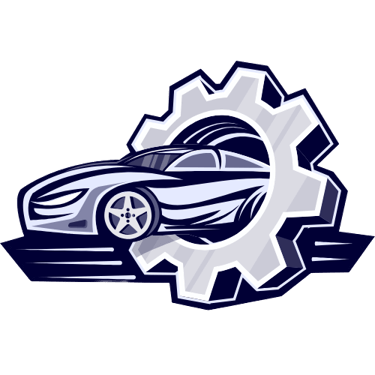Essential Maintenance
Your Silvia's Secret Weapon


Your Silvia's Secret Weapon
You know your Nissan Silvia isn't just a car; it's a statement. To keep it roaring and looking its best, you need a solid maintenance routine. Think of it as giving your beloved Silvia a spa day, but with wrenches and oil instead of cucumber slices. Regular upkeep ensures your ride stays reliable and retains its value, letting you enjoy those thrilling drives for years to come. Don't let minor issues turn into major headaches; a little preventative care goes a long way. You want to avoid those unexpected breakdowns, right? So, let's get started with a checklist that's easy to follow, even if you're not a seasoned mechanic.
Your Monthly Check-Up: Keeping Things Tight
First, let's tackle the monthly essentials. You should be checking your fluid levels regularly. This includes your engine oil, coolant, brake fluid, and power steering fluid. Make sure they're all topped up and clean. You'll want to inspect your tires for wear and tear, and also check the tire pressure. Proper tire pressure improves fuel efficiency and handling. You should also give your battery terminals a quick look for any corrosion. A clean battery ensures a reliable start every time. Don’t forget to inspect your lights; working headlights and taillights are crucial for safety. You can also give your windshield washer fluid a top up. You want to make sure you have clear visibility when you are driving.
Next, give your engine bay a visual once-over. Are there any leaks or loose hoses? Catching these issues early can prevent costly repairs. You can also give the air filter a quick look. If it's dirty, you'll want to replace it. A clean air filter improves engine performance and fuel economy. You should also check your belts for cracks or fraying. Worn belts can snap and cause serious damage. Lastly, give your brake pads a quick inspection. If they're worn thin, you'll need to replace them. Safe brakes are essential for safe driving. You can do all these things yourself, or have a mechanic do it for you.
Your Quarterly Tune-Up: Deeper Dive
Now, let's move on to the quarterly maintenance. Every three months, you'll want to change your engine oil and oil filter. Fresh oil keeps your engine running smoothly and extends its lifespan. You should also rotate your tires to ensure even wear. Rotating your tires prolongs their life and improves handling. You can also inspect your brake rotors and calipers. Make sure they're in good condition and free of damage. You can also check your suspension components for any signs of wear. Worn suspension parts can affect handling and ride quality. If you are comfortable, you can inspect your spark plugs. Faulty spark plugs can cause misfires and reduce engine performance. If you are not comfortable, get a professional to do this.
You should also check your transmission fluid. Proper transmission fluid levels ensure smooth shifting. You can also inspect your differential fluid. This helps to keep your rear end in good working order. You can also give your power steering system a thorough check. Look for leaks and ensure the fluid is clean. You should also inspect your fuel filter. A clean fuel filter improves fuel efficiency and engine performance. Lastly, you can check your exhaust system for leaks or damage. Leaks can affect performance and cause noise. You can do all these things yourself, or have a mechanic do them for you.
Your Annual Overhaul: The Big Picture
Finally, let's talk about the annual maintenance. Once a year, you should replace your air filter and fuel filter. Fresh filters keep your engine running efficiently. You should also flush your coolant system. This prevents corrosion and ensures proper cooling. You can also flush your brake fluid. Fresh brake fluid improves braking performance. You should also inspect your timing belt or chain. A worn timing belt can cause catastrophic engine damage. You can also inspect your suspension bushings and ball joints. Worn bushings and ball joints affect handling and ride quality.
You should also inspect your wheel bearings. Worn wheel bearings can cause noise and affect handling. You can also inspect your drive shaft and universal joints. Worn components can cause vibrations and affect performance. You should also inspect your clutch system. A worn clutch can affect shifting and performance. Lastly, you can give your interior and exterior a thorough detailing. A clean car is a happy car. You can do all these things yourself, or have a mechanic do them for you. Remember, regular maintenance is key to keeping your Nissan Silvia in top condition. By following this checklist, you can enjoy your classic ride for many years to come. And when you need those essential Nissan Silvia parts, you know where to find them.
Quality
High-quality automotive spare parts for everyone.
Trust
Service
+15017812365
© 2025. All rights reserved.
